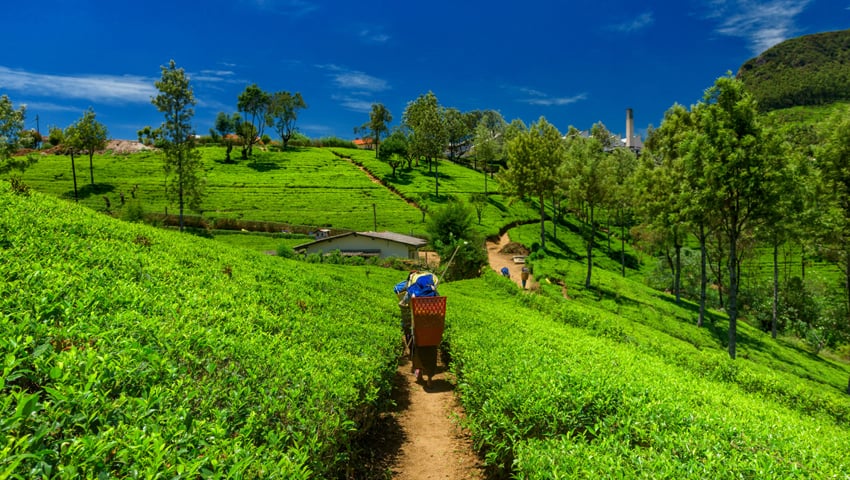The African Development Bank’s Dakar II initiative, ‘Feed Africa: Food Sovereignty and Resilience’, is the latest and most ambitious addition to the bank’s longstanding Feed Africa program.
But, the Alliance for Food Sovereignty in Africa (AFSA), believes that this strategy is potentially marginalising small-scale farmers, undermining biodiversity, and fostering dependency on multinational corporations for seeds and agrochemicals.
The ADB initiative aims to transform African agriculture and turn Africa into a breadbasket for the world. Delivered through national agricultural development plans for 40 African countries, the initiative has sparked significant debate regarding its approach and potential impacts. The initiative seeks to industrialise African food systems with a proposed budget of $61 billion, primarily sourced from the private sector and development institutions.
To better understand the Dakar II Initiative, AFSA analysed each of the 40 “country compacts” – the comprehensive agricultural development plans developed by consultants for the program.
They examined critical factors, including funding, land allocation, seeds, agrochemical use, technology, and people, to assess their collective implications for Africa’s small-scale farmers.
Now, in a new report, AFSA has presented the essential findings and the concerns they raise.
An AFSA spokesperson said, “Critics, including the President of Ireland, have voiced concerns over the initiative’s one-size-fits-all approach and its emphasis on large-scale monocropping, formal seed systems, and high-tech solutions such as climate-smart agriculture, digital and precision agriculture, and chemical inputs. These methods are out of reach for small-scale farmers due to their cost, risk to the environment, and threat to their autonomy and traditional practices.”
By contrast, AFSA advocates for a shift towards agroecology and food sovereignty, emphasising the importance of sustainable agriculture and the empowerment of small-scale farmers.
With an impact on approximately 200 million individuals, AFSA’s stance underscores a significant pushback against the Green Revolution-style industrialisation of agriculture and calls for a re-evaluation of strategies to unlock Africa’s agricultural potential.
The AFSA spokesperson said, “While the Dakar II initiative represents a significant investment in the future of African agriculture, its current trajectory raises concerns about inclusivity, environmental sustainability, and the long-term viability of small-scale farming. A recalibration towards more holistic, inclusive, and sustainable approaches, such as agroecology, is necessary to ensure that the development of African agriculture benefits all stakeholders and preserves the continent’s rich biodiversity and agricultural heritage.”
AFSA’s five key criticisms:
- One-size-fits-all approach: The Dakar II Compacts demonstrate a one-size-fits-all approach to agricultural development, overlooking the diverse needs and contexts of African countries and their farmers. This uniform strategy of agricultural industrialisation risks side-lining small-scale farmers who are vital to the continent’s food security and cultural heritage.
- Threats to land rights and the environment: The cumulative total of proposed new land area to be put into industrial production is close to 22 million hectares, or 220,000 sq. km – an area almost the size of Ghana. This risks massive smallholder displacement through land-grabbing and increased pressure on the environment from unsustainable industrial agriculture on currently uncultivated land.
- Marginalisation of small-scale farmers: The emphasis on large-scale monocropping and formal seed systems poses challenges for small-scale farmers in sustaining their food security and preserving biodiversity. This approach marginalises the importance of locally significant foods and strips away their cultural significance. By prioritising formal seed systems and high-tech solutions, there is a risk of increasing dependency on multinational corporations and eroding traditional seed-saving practices.
- Threats to biodiversity: The initiative’s emphasis on high-yielding, uniform crop varieties in formal seed systems, coupled with the promotion of chemical fertilisers and pesticides, poses significant threats to both biodiversity and sustainable agriculture. This approach risks diminishing traditional crop diversity, indigenous seed varieties, and valuable genetic resources while raising concerns about environmental sustainability, affordability, farmer autonomy, and exacerbating inequalities.
- Dependency and control: There are significant worries about increased dependency on multinational seed companies or government agencies due to reliance on formal certified seed systems. This dependency could undermine farmers’ autonomy and resilience, making them reliant on external sources for their seed needs.
Recommendations:
- Re-evaluate the initiative’s approach: It is crucial to assess the Dakar II initiative’s strategies to ensure they are inclusive, sustainable, and tailored to the specific needs of diverse African countries and their farmers.
- Protect smallholder land rights: Existing land users must be protected from arbitrary dispossession of their lands for large-scale industrial agriculture projects, in line with protections provided by the African Union’s Land Governance Strategy, the Voluntary Guidelines on the Responsible Governance of Tenure of Land, Fisheries and Forests, and the United Nations Declaration on the Rights of Peasants and Other People Working in Rural Areas
- Promote agroecology: A shift towards agroecology is recommended to move away from dependency and insecurity towards a decolonised agronomy. Agroecological models offer a path that supports diverse agricultural development and empowers small-scale farmers by providing a viable, nutritious, affordable and sustainable alternative to industrial agriculture.
- Adopt inclusive and participatory approaches: Policies and investments should prioritise the needs and voices of small-scale farmers, ensuring they have access to resources, knowledge, and markets. Decision-making processes should be more inclusive and participatory, considering the diverse perspectives of farmers and other stakeholders, to ensure that agricultural development is aligned with the priorities of African farmers and communities.
- Preserve agricultural biodiversity: Efforts should be made to preserve agricultural biodiversity by supporting the maintenance of a rich variety of crops and breeds managed by small-scale food producers. This approach would ensure the resilience of smallholder farmers and the environmental sustainability upon which they depend.
